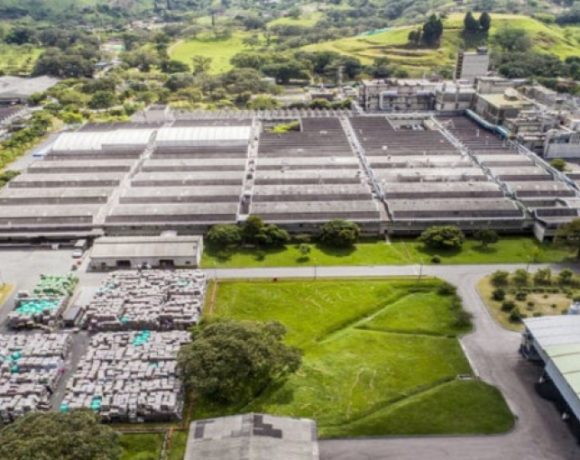Grupo Excala/Compañia de Empaques 3Q 2023 Net Income Improves Year-on-Year

Medellin-based multinational specialty fibers and packaging producer Grupo Excala/Compañia de Empaques announced November 14 that its third quarter (3Q) 2023 net income nearly doubled year-on-year, to COP$6.3 billion (US$1.5 million), from COP$3.35 billion (US$820,000) in 3Q 2022.
Revenues also rose year-on-year, to COP$33.7 billion (US$8.25 million) in 3Q 2023 versus COP$29 billion (US$7.1 million) in 3Q 2022.
As for nine-months (January through September) 2023, net income was almost unchanged-year-on-year, at COP$18.99 billion (US$4.65 million) for nine-months 2023 versus COP$$18.88 billion (US$4.62 million) for nine-months 2022, according to the company.
The company specializes in production and sale of bags and packages derived from natural fibers (Cabuya and La Pita) as well as various synthetic, metallic and non-metallic fibers. Its principal subsidiaries include Texcomercial (Colombia), Texcomercial (Ecuador), Compañia de Empaques (Colombia)) and Exc Packaging SA (Mexico)
Citing 2023 highlights to date, Excala noted a continued “consolidation of our operation in Mexico Exc Packaging,” where bag production is up 50% year-on-year.
“This has allowed us to start a year with positive results in this company, contributing almost a third of the consolidated profits to the group,” according to Excala.
“We are convinced that we must continue strengthening our presence in Mexico and in other geographies in general through the search for new investment options and strategic partners that allow us to carry out effective diversification of country risk,” the company added.
So far this year, “all business lines have been reporting an increase [in sales] compared to the last quarter of 2022 and we continue to bet on new developments in the ‘Bioapplications’ strategic unit.
“At Texcomercial Colombia we continue to consolidate the distribution business and support the sales strategy in the business units in which Texco is the ‘last mile’ of the Excala Group.
“Our efforts continued to focus on making the product portfolio more profitable by attracting new customers, and also focus on the efficient management of working capital, especially in portfolio and inventories.
“Due to high interest rates, inventory purchases were very controlled and this had a significant impact on the decrease in income from rebates, which negatively affected Texcomercial’s profits.
“In the case of Texcomercial Ecuador, we continue to expand our product portfolio with new lines and deepening the current portfolio. On the political front, the government has supported the economy and has allowed businesses to flow without major trauma.
“In the natural fibers business, we continue to advance in the industrialization process for the cultivation and processing of fique and its byproducts, with very significant advances on both fronts, in order to guarantee a stable supply of natural fibers. We continue to strongly support small- and medium-sized farmers, indigenous communities in the south of Colombia and the expansion of cultivated areas that, in the future, would help normalize supply.
“In 2023 there was a significant increase in fique prices, mainly due to the increase in inflation and the legal minimum wage since they are still labor-intensive processes.
“In the case of plastic resins, these presented high volatility in prices and exchange rates that ultimately ended up impacting the company’s results. By end-2023 we expect stability in raw material prices but high volatility in the peso-U.S. dollar exchange rates, for which the company will continue to maintain its hedging policy.
“In the case of Compañía de Empaques Internacional, during 2023, sales volumes to the export market increased with margins that allowed it to generate profits and contribute to the growth of the group.
“However, in search of an efficient operating model and looking for alternatives that allow reducing and diversifying risks, the company is studying the possibility of moving the production operation to another site,” Excala added.
















